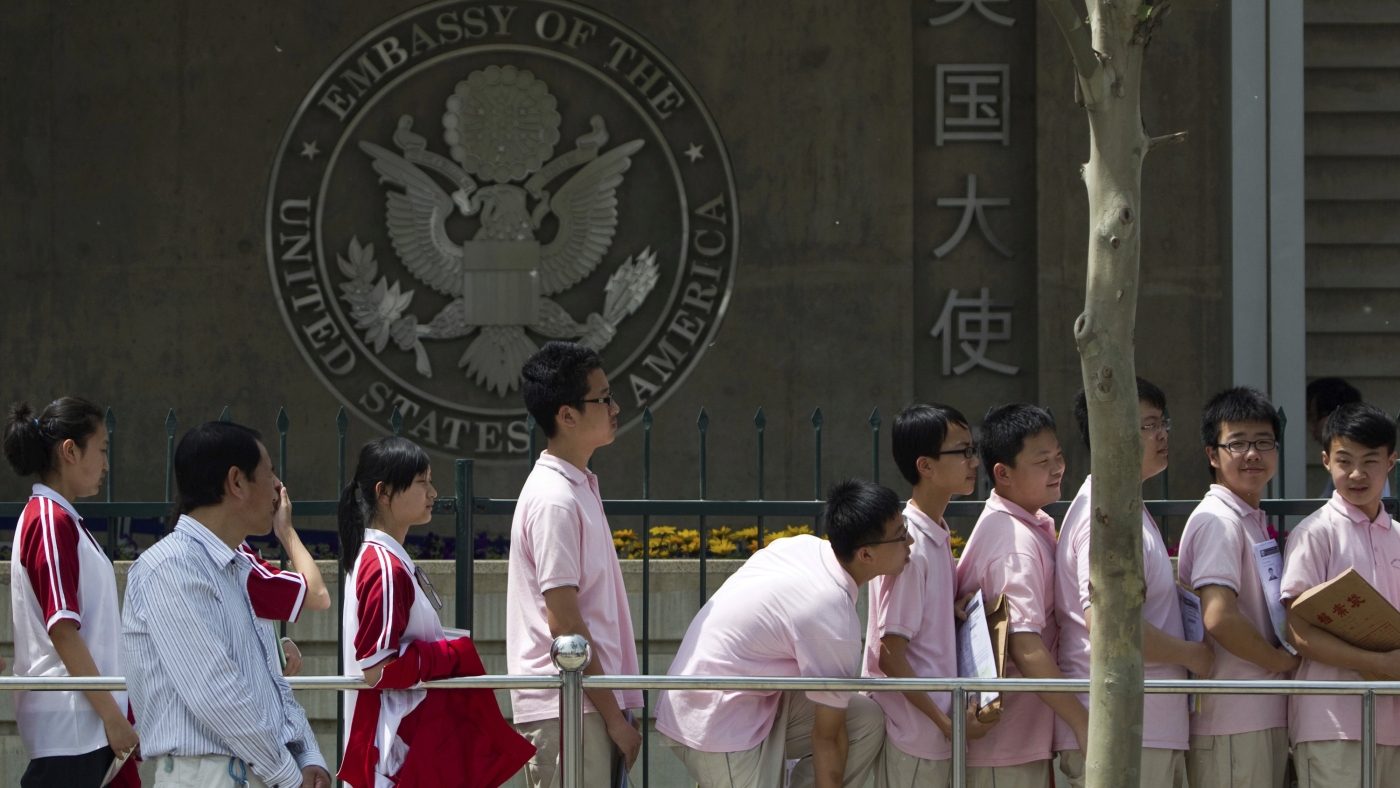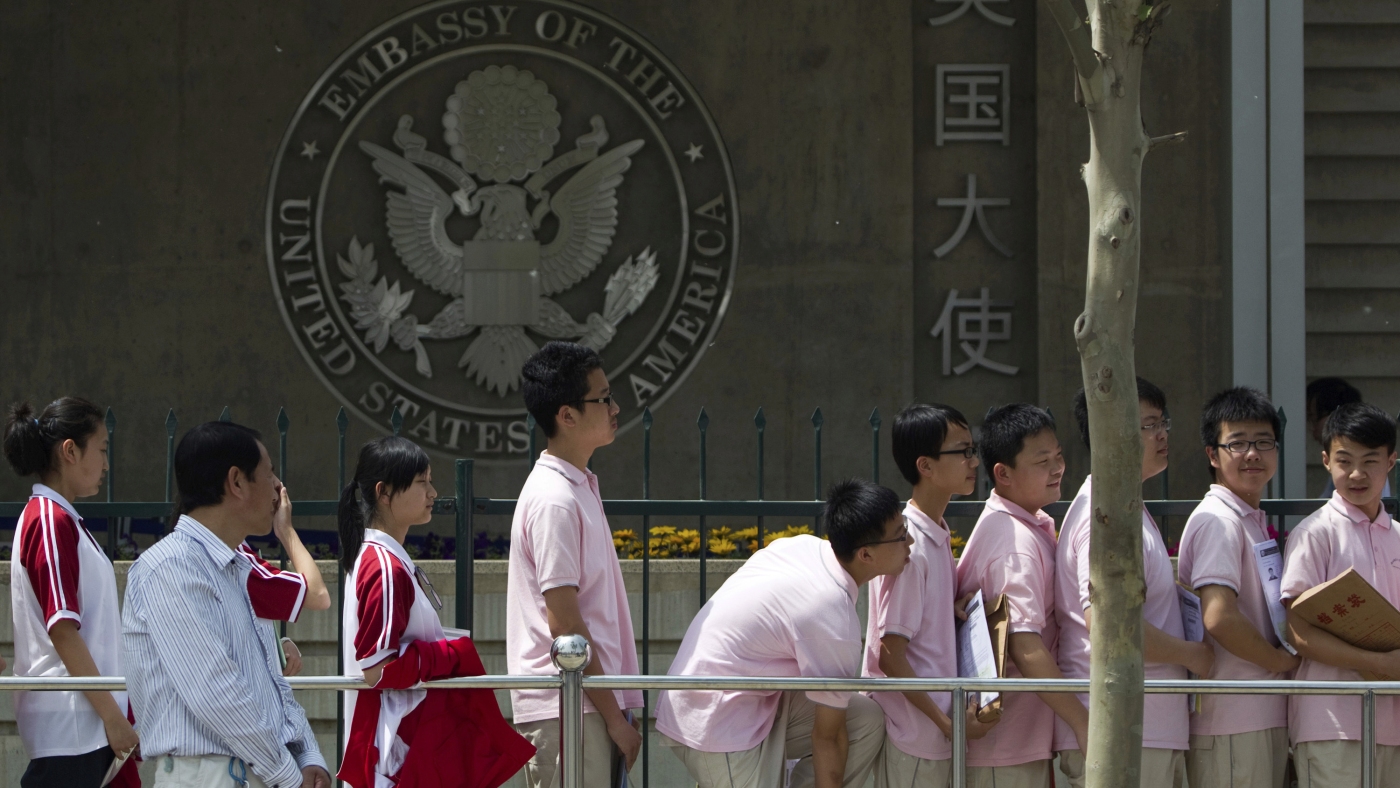Introduction
In an era where digital footprints are as significant as academic credentials, the U.S. State Department’s recent policy shift on student visa applications has sparked a wave of discussions and concerns. The requirement for foreign students to make their social media accounts public for government review is a bold move that intersects immigration policy, individual privacy rights, and the dynamics of international education. This analysis delves into the background, implications, and critical considerations of this policy change, offering a comprehensive view of its potential impacts.
Background and Scope of the Policy Change
The U.S. State Department’s decision to resume processing student visa applications after a suspension in May comes with a new, stringent requirement: applicants must grant access to their social media accounts. This move intensifies the vetting process, mandating that prospective students set their social media profiles to “public” for consular officers to inspect. Non-compliance can result in visa denial, raising suspicions about the applicant’s intentions or affiliations.
This enhanced vetting targets major social media platforms like Facebook, Twitter, Instagram, TikTok, and LinkedIn. The goal is to screen for content or behavior that might indicate hostility toward U.S. citizens, culture, or fundamental principles. This measure is part of a broader effort to bolster national security and aligns with previous administrations’ initiatives to tighten immigration oversight.
Implications for International Students and the Education Sector
Access and Privacy Concerns
Social media has been a vital tool for international students, facilitating personal expression, networking, and cultural exchange. The new policy, however, raises significant privacy issues. Applicants may have content on their profiles that, while innocuous or contextually understandable, could be misinterpreted by consular officers. This demand for digital transparency also touches on the delicate balance between national security and individual rights, introducing a form of digital surveillance before granting entry.
Moreover, the policy could have a chilling effect on free speech. Students might feel compelled to sanitize or manipulate their social media presence to avoid visa rejection, undermining authentic self-representation. This could lead to a more cautious and less open digital footprint, affecting how students engage on social media platforms.
Impact on Student Mobility and University Diversity
The U.S. has long been a top destination for international students, who enrich campuses with diversity and intellectual vibrancy. The new scrutiny requirement could deter applicants from countries with stricter social media cultures or communities wary of surveillance. Countries like China, India, Mexico, and the Philippines, which have high student visa application volumes, are closely monitoring these developments.
The policy may alter the demographic patterns of international student flows. Applicants from countries with sensitive political climates or privacy concerns might opt for alternative destinations perceived as less intrusive. This shift could impact university funding, research, and cultural exchange programs, as international students contribute significantly to these areas.
Government Rationale and Security Priorities
The U.S. State Department justifies the measure as essential for identifying potential security risks. By examining social media presence, consular officers aim to uncover “indications of hostility” that traditional background checks or interviews might miss. This approach allows for a more nuanced evaluation of an applicant’s ideologies, associations, and past behaviors, addressing contemporary challenges in global security, including radicalization and misinformation.
Critical Considerations and Risks
Subjectivity and Bias
Interpreting social media content can be highly subjective, especially across cultural and linguistic divides. Benign expressions or cultural idioms might be misinterpreted as hostile or inappropriate, leading to unfair denials. This subjectivity raises concerns about the fairness and consistency of the vetting process.
Transparency and Accountability
Visa applicants may struggle to understand specific reasons for rejection related to social media content, raising questions about transparency and avenues for appeal. Clear guidelines and appeal processes are crucial to ensure fairness and accountability in the vetting process.
Deterrence vs. Inclusion
While national security is a legitimate government interest, excessive procedural barriers can dampen the U.S.’s appeal as a welcoming academic destination. This could impact university funding, research advances, and cultural exchange, as international students contribute significantly to these areas.
Privacy Rights
The demand for social media access highlights the tension between a government’s right to secure its borders and an individual’s right to digital privacy. It raises fundamental questions about the evolving legal and ethical landscape governing access to personal online data in immigration contexts.
Conclusion: Navigating a New Era for International Academic Engagement
The resumption of student visa processing with mandatory social media disclosure marks a pivotal shift in how the U.S. balances security priorities with its role as a global education hub. This approach could enhance protections and vet out malign intentions but also introduces complexities around privacy, fairness, and the potential deterrent effect on valuable international students.
Universities, policymakers, and prospective students are now navigating a more intricate admission landscape, where digital footprints carry significant weight. The full implications of this policy change will unfold over time, potentially reshaping the terrain of U.S. international education and raising fundamental questions about surveillance, trust, and openness in a digitally connected world. As we move forward, it is crucial to strike a balance that ensures national security without compromising the principles of privacy, fairness, and inclusivity that define a truly global education system.








